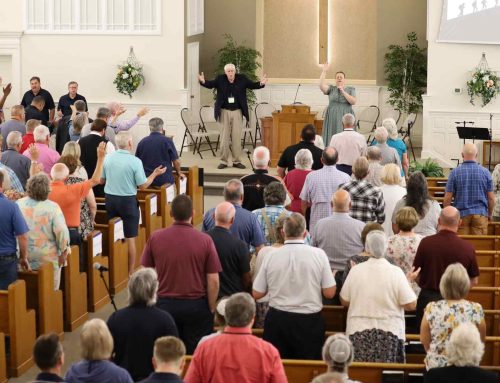 On the 10th day of the Jewish month Nissan the Passover lamb was chosen for sacrifice. It was kept until the 14th day when it was slaughtered, its blood smeared onto the doorposts and lentil above the door, then roasted and consumed by the members of each Jewish household. This was an act done in faith that God would see the blood of the sacrifice and therefore withhold His judgment from those gathered within the home. You can read the details in Exodus 12:1-12.
On the 10th day of the Jewish month Nissan the Passover lamb was chosen for sacrifice. It was kept until the 14th day when it was slaughtered, its blood smeared onto the doorposts and lentil above the door, then roasted and consumed by the members of each Jewish household. This was an act done in faith that God would see the blood of the sacrifice and therefore withhold His judgment from those gathered within the home. You can read the details in Exodus 12:1-12.
John the Baptist identified Jesus as the “Lamb of God who takes away the sin of the world” in John 1:29 and 1:36. The Apostle Paul specifically identifies Him as our Passover Lamb in 1 Corinthians 5:7. The Apostle Peter reminds his readers in 1 Peter 1:18-19 that, “…you were not redeemed with corruptible things, like silver or gold, from your aimless conduct received by tradition from your fathers, but with the precious blood of Christ, as of a lamb without blemish and without spot.”
All this was foretold by the prophet Isaiah over 700 years before Jesus’ death, burial, and resurrection took place. Consider these verses from Isaiah 53. “He is despised and rejected by men, A Man of sorrows and acquainted with grief. And we hid, as it were, our faces from Him; He was despised, and we did not esteem Him. Surely He has borne our griefs And carried our sorrows; Yet we esteemed Him stricken, Smitten by God, and afflicted. But He was wounded for our transgressions, He was bruised for our iniquities; The chastisement for our peace was upon Him, And by His stripes we are healed.” (Verses 3-5 NKJV)
The hymn O Sacred Head, Now Wounded is based on Isaiah 53. In verse two, the author reminds us that everything Jesus Christ suffered was “all for sinners’ gain.” His death was a substitution. “Mine, mine was the transgression, But Thine the deadly pain.”
Have we considered that all which Jesus endured – the mocking, hatred, ridicule, spitting, beating, crown or thorns shoved down upon His head, and His being nailed to the cross to die – were done willingly for us? Have we contemplated that Jesus was abandoned by God to endure God’s wrath against sin so that we who have acknowledged Jesus as the Son of God and our Savior would be forgiven and made to be children of God?
Verse three of O Scared Head provides the only fitting response in the light of Jesus’ sacrifice on our behalf.
“What language shall I borrow to thank thee, dearest Friend,
For this, thy dying sorrow, thy pity without end?
Oh, make me thine forever, and should I fainting be,
Lord, let me never, never outlive my love to thee.”
May we take time before Resurrection Sunday to reflect deeply upon Isaiah 53 and to sing the soul-stirring hymn O Sacred Head, Now Wounded with a heart filled with love and gratitude for what Jesus has done for us.
Roger Myers – CBC Devotional Editor





